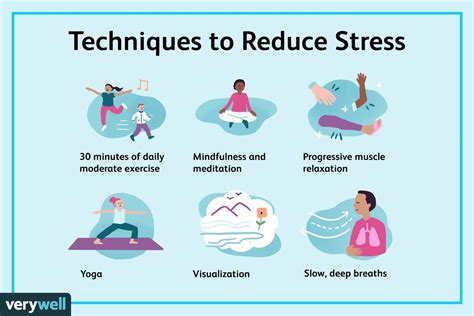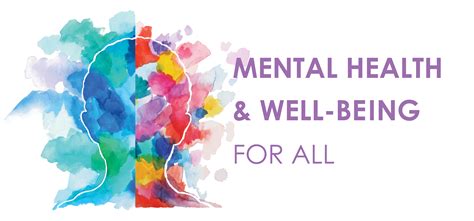Engaging in consistent physical activity has been proven to bring about a multitude of extraordinary psychological benefits.
Participating in regular exercise goes far beyond merely strengthening your body and improving your overall physical fitness. It has the astonishing capacity to work wonders on your mental well-being as well.
Research has shown that incorporating regular physical activity into your daily routine can have a profound impact on your mood, cognitive function, and overall emotional well-being. As you embark on a journey of consistent exercise, you are bound to discover the astonishing power it possesses to boost your mental resilience.
The Power of Physical Activity for Emotional Well-being

Engaging in regular physical activity can have a profound impact on our emotional well-being, providing immense benefits that go beyond what may initially come to mind. Exercise possesses an extraordinary capacity to positively influence our mental state, uplifting our spirits and enhancing our overall sense of happiness and satisfaction.
1. Boosts Mood: Physical activity has a remarkable ability to stimulate the release of endorphins, often referred to as the "feel-good" hormones. These natural chemicals serve as mood enhancers, helping to alleviate feelings of stress, anxiety, and sadness, while promoting a greater sense of joy and positivity.
2. Relieves Stress: When we exercise, our bodies produce higher levels of endorphins, which help to counteract the effects of stress hormones such as cortisol. This natural stress relief can improve our ability to cope with daily challenges, promote a sense of calmness, and enhance our overall resilience in the face of adversity.
3. Improves Cognitive Function: Regular physical activity has been shown to enhance cognitive function and boost our mental sharpness. Exercise increases blood flow to the brain, which can enhance focus, concentration, and memory. It also promotes the growth and development of new brain cells, leading to improved cognitive abilities over time.
4. Fosters Emotional Resilience: Engaging in physical activity can help build emotional resilience, allowing us to better handle difficult emotions and bounce back from setbacks. Exercise provides a healthy outlet for emotional energy, enabling us to release tension, gain clarity, and approach challenges with a more positive and optimistic mindset.
5. Promotes Better Sleep: Regular exercise can significantly improve sleep quality, helping us to fall asleep faster and experience more restful sleep. By reducing symptoms of insomnia and promoting relaxation, physical activity plays a vital role in maintaining a healthy sleep routine, which is essential for overall mental well-being.
6. Enhances Self-esteem: Engaging in physical activity regularly can boost self-esteem and improve body image. Exercise can lead to improvements in physical appearance, increase feelings of self-worth, and provide a sense of accomplishment. These positive changes contribute to a healthier self-perception and overall confidence.
Incorporating physical activity into our daily lives can yield remarkable benefits for our emotional well-being. By boosting our mood, relieving stress, improving cognitive function, fostering emotional resilience, promoting better sleep, and enhancing self-esteem, exercise becomes a powerful tool in supporting our mental health and promoting a greater sense of overall well-being.
Enhancing Mood and Alleviating Depression
One of the remarkable effects of engaging in regular physical activity is its ability to uplift spirits and alleviate symptoms of depression. Through the power of exercise, individuals can experience a significant boost in their overall mood and find relief from the debilitating effects of depression.
Regular physical activity offers a myriad of benefits for mental well-being, including the release of endorphins, commonly referred to as the body's natural "feel-good" chemicals. These neurochemicals act as mood enhancers and contribute to a sense of happiness, contentment, and overall positivity. By incorporating exercise into one's routine, individuals can tap into this valuable resource to combat depressive feelings and experience an increased sense of mental well-being.
Furthermore, regular exercise provides a valuable outlet for stress reduction. Physical activity acts as a distraction from daily worries and allows individuals to redirect their focus towards a beneficial and constructive endeavor. Engaging in a workout routine can serve as a powerful coping mechanism, providing individuals with an avenue to release built-up tension, clear their minds, and gain a fresh perspective on their challenges. This effect is particularly valuable for those experiencing symptoms of depression, as it can help alleviate stress and promote a greater sense of emotional stability.
In addition to its immediate impact, exercise also plays a vital role in the long-term management of depression. Research indicates that individuals who engage in regular physical activity are more likely to experience decreased rates and severity of depressive episodes over time. By establishing a consistent exercise routine, individuals can build resilience against depression and enhance their capacity to maintain a positive mental state.
In conclusion, incorporating regular exercise into one's lifestyle can have a profound impact on mood enhancement and the alleviation of depression. By harnessing the power of physical activity, individuals can tap into the release of endorphins, find stress relief, and build long-term resilience against depressive symptoms. Embracing an active lifestyle can be a transformative experience, providing individuals with the tools to achieve and maintain optimal mental well-being.
Reducing Anxiety and Stress Levels

Discovering ways to alleviate feelings of unease and tension is an important aspect of achieving overall well-being. Engaging in regular physical activity can be a valuable tool in the pursuit of tranquility and peacefulness.
Exercise holds the potential to act as a natural remedy for anxiety and stress, providing a respite from the overwhelming pressures and responsibilities of daily life. By consistently partaking in physical activity, individuals may experience a reduction in anxiety symptoms and an improvement in their ability to cope with stressful situations.
One of the primary ways exercise aids in lowering anxiety and stress levels is by triggering the release of endorphins, commonly known as the "feel-good" hormones. These chemicals, produced by the body during physical exertion, have the ability to elevate mood and promote a sense of relaxation.
In addition to the release of endorphins, regular exercise also offers a distraction from worrisome thoughts and concerns. Engaging in physical activity allows individuals to redirect their focus away from their anxieties and channel their energy into productive, health-enhancing activities.
Furthermore, leading an active lifestyle can foster a sense of control and empowerment over one's mental well-being. By incorporating exercise into one's routine, individuals gain a tangible tool to actively manage their anxiety and stress levels, rather than feeling helpless or overwhelmed by their circumstances.
It is important to note that the type and intensity of exercise may vary depending on individual preferences and physical capabilities. Whether it be a brisk walk, a yoga session, or a high-intensity workout, finding a form of exercise that brings joy and satisfaction is crucial in reaping the mental health benefits it offers.
Incorporating regular exercise into one's life can have a transformative impact on reducing anxiety and stress levels, promoting a greater sense of calm and emotional well-being.
Enhancing Cognitive Function and Memory
Boosting cognitive abilities and improving memory are key areas of focus when it comes to the positive effects of regular physical activity on mental well-being. Engaging in physical exercise on a consistent basis offers a multitude of advantages for the mind and helps sharpen cognitive function.
- Increased Blood Flow: Regular exercise promotes improved blood circulation, delivering essential oxygen and nutrients to the brain. This enhanced blood flow plays a vital role in supporting cognitive function and memory retention.
- Neuroplasticity: Physical activity stimulates the growth of new brain cells and strengthens existing neural connections. This phenomenon, known as neuroplasticity, enhances cognitive abilities, including learning, problem-solving, and creativity.
- Reduced Stress and Anxiety: Engaging in exercise helps manage stress and reduces anxiety levels, which can hinder cognitive performance. By alleviating these psychological burdens, individuals can experience improved focus, concentration, and memory recall.
- Enhanced Neurotransmitters: Exercise triggers the release of various neurotransmitters, such as dopamine and serotonin, which are crucial for mood regulation and cognitive function. These chemicals contribute to a sense of well-being and can enhance memory and cognitive processing.
- Improved Sleep: Regular physical activity promotes better sleep quality, crucial for optimal cognitive function and memory consolidation. Adequate restorative sleep aids in information retention, problem-solving abilities, and overall mental clarity.
Incorporating regular exercise into one's routine has the remarkable ability to enhance cognitive function and memory by improving blood flow, promoting neuroplasticity, reducing stress and anxiety, boosting neurotransmitter levels, and facilitating quality sleep.
Enhancing Sleep Quality and Combating Insomnia

Sleep plays a crucial role in maintaining overall well-being, and establishing a healthy sleep routine is key to optimizing physical and mental performance. In the context of discussing the remarkable effects of engaging in regular physical activity, it is worth exploring the positive impact exercise can have on improving sleep quality and alleviating insomnia.
One compelling advantage of incorporating physical exercise into daily life is its ability to promote better sleep patterns and reduce difficulties in falling asleep or staying asleep. Engaging in regular exercise routines can regulate the sleep-wake cycle, facilitating a more synchronized and restorative slumber. Individuals who engage in physical activity often experience a decrease in the time it takes to fall asleep, enhanced sleep efficiency, and a decrease in the amount of time spent awake during the night.
Exercise can also help combat insomnia, a common sleep disorder characterized by persistent difficulties in initiating or maintaining sleep. The physical exertion involved in exercise stimulates the body to release endorphins, neurotransmitters that act as natural painkillers and mood boosters. This release of endorphins not only contributes to a better mood but also helps create the ideal physiological conditions for quality sleep. By reducing stress levels and promoting relaxation, exercise becomes a powerful tool in combating the restlessness and anxiety often associated with insomnia.
In addition to the chemical changes it induces in the body, exercise also serves as a valuable outlet for reducing mental tension and promoting a sense of calmness. Engaging in regular physical activity enables individuals to channel their thoughts, redirect their energy, and release any built-up stress, making it easier to achieve a peaceful state of mind before bedtime. Exercise can act as a form of meditation, allowing individuals to focus on their bodies and the present moment, relieving mental fatigue and promoting a tranquil state conducive to sleep.
| Benefits of Exercise for Sleep Quality: | Benefits of Exercise for Combating Insomnia: |
|---|---|
| Regulation of sleep-wake cycle | Reduction in anxiety and restlessness |
| Decreased time to fall asleep | Promotion of relaxation |
| Enhanced sleep efficiency | Release of endorphins for mood improvement |
| Reduced nocturnal awakenings | Channeling of mental tension |
In summary, integrating regular exercise into one's lifestyle not only yields numerous mental and physical health benefits but also significantly contributes to improving sleep quality and combating insomnia. By understanding the profound impact of exercise on sleep, individuals can harness its potential to enhance their overall well-being and enjoy more restful nights.
Improving Confidence and Body Perception
Engaging in consistent physical activity provides numerous advantages beyond the evident physical transformations. One of the notable benefits is the positive impact it has on self-esteem and body image. Regular exercise assists in fostering a more favorable perception of oneself, bolstering confidence, and enhancing overall well-being.
By participating in physical activities, individuals often experience an increased sense of self-worth and personal value. Engaging in exercise can help individuals feel a sense of accomplishment and pride in their ability to set and achieve goals, further boosting their confidence. Moreover, regular exercise promotes a greater appreciation for one's body, accepting it for its capabilities rather than solely focusing on aesthetic aspects.
This positive shift in self-perception extends beyond physical appearance and can lead to improvements in various areas of life. Feeling more confident in one's body can enhance social interactions, allowing individuals to engage more freely with others and project a greater sense of self-assurance. Additionally, increased self-esteem can positively influence mental health, helping individuals better manage stress, anxiety, and depression.
Furthermore, regular exercise enables individuals to develop a stronger connection with their bodies. As individuals become more attuned to their physical abilities, they can develop a greater sense of control and autonomy. This enhanced body awareness can lead to improved body image by emphasizing functional abilities and overall physical health rather than societal standards of beauty.
In conclusion, regular exercise plays a crucial role in enhancing self-esteem and cultivating a positive body image. By promoting confidence and body perception, individuals can experience improved overall well-being and a greater appreciation for themselves and their bodies.
Promoting Overall Mental Well-being

Enhancing your emotional and psychological health is crucial for maintaining a positive state of mind and achieving overall mental well-being. Engaging in regular physical activity plays a significant role in promoting a healthy mind and can have a profound impact on various aspects of your mental well-being.
| 1. Improved Mood | Regular exercise can boost your mood, reduce feelings of anxiety and stress, and increase overall feelings of happiness and well-being. It stimulates the release of endorphins, also known as "feel-good" hormones, which help alleviate symptoms of depression. |
| 2. Reduced Risk of Mental Health Conditions | Engaging in physical activity on a regular basis has been shown to lower the risk of developing mental health conditions such as depression and anxiety disorders. Exercise can act as a protective factor, helping to reduce the occurrence and severity of these conditions. |
| 3. Enhanced Cognitive Function | Physical exercise not only improves your physical health but also enhances your cognitive function. It can improve your memory, attention span, and overall brain function. Regular activity increases blood flow to the brain, promoting the growth of new brain cells and improving mental clarity. |
| 4. Better Stress Management | Regular exercise can be an effective tool in managing and reducing stress. It helps to release tension, clear your mind, and provides a healthy outlet for expressing and coping with stress. Engaging in physical activity can also improve your ability to handle stressful situations and promote relaxation. |
| 5. Boosted Self-esteem and Confidence | Physical activity can significantly boost self-esteem and confidence, leading to a more positive self-perception. Achieving personal fitness goals, improving physical abilities, and maintaining an active lifestyle can enhance your overall sense of self-worth and confidence. |
Overall, incorporating regular exercise into your routine can have a multitude of benefits for your mental well-being. From improved mood and reduced risk of mental health conditions to enhanced cognitive function and better stress management, exercise is a powerful tool for promoting overall mental well-being and achieving a balanced and healthy mind.
FAQ
What are the mental health benefits of regular exercise?
Regular exercise has a number of mental health benefits. Firstly, it can help reduce symptoms of anxiety and depression. Exercise releases endorphins, which are often referred to as "feel-good" hormones, improving mood and reducing feelings of stress. In addition, exercise can increase self-confidence and self-esteem. It provides a sense of achievement and boosts cognitive function, leading to improved mental clarity and focus. Exercise can also promote better sleep, which is crucial for maintaining good mental health.
How often should I exercise to experience mental health benefits?
The frequency of exercise needed to experience mental health benefits may vary for individuals, but generally, it is recommended to engage in moderate intensity exercise for at least 150 minutes per week. This can be broken down into roughly 30 minutes of exercise on most days of the week. However, any amount of physical activity is better than none, so even short bursts of exercise can still provide some mental health benefits.
Can exercise help with stress relief?
Absolutely! Exercise is an excellent stress reliever. When we engage in physical activity, it helps to reduce levels of stress hormones such as cortisol, while simultaneously releasing endorphins, which help improve mood. Exercise can serve as a healthy outlet for stress, allowing us to clear our minds, focus on the present moment, and temporarily forget about our worries.
Are there specific types of exercise that are particularly beneficial for mental health?
Various types of exercise can be beneficial for mental health, so it ultimately depends on individual preferences. However, aerobic exercises like running, swimming, cycling, and dancing have been shown to have particularly positive effects on mental well-being. These types of exercises increase heart rate and oxygen flow to the brain, promoting the release of endorphins and reducing symptoms of anxiety and depression.
Can exercise improve cognitive function and memory?
Yes, exercise can greatly improve cognitive function and memory. Physical activity increases blood flow to the brain, supplying it with more oxygen and nutrients, which are essential for optimal brain function. Exercise has been shown to enhance memory, attention span, and overall cognitive performance. It also stimulates the production of growth factors that help create new brain cells and strengthen existing ones, ultimately benefiting cognitive abilities.
How does regular exercise affect mental health?
Regular exercise has numerous positive effects on mental health. It helps reduce symptoms of depression and anxiety, improves mood, boosts self-esteem, enhances cognitive function, and promotes better sleep. Exercise also releases endorphins, which are known as "feel-good" hormones, leading to increased happiness and reduced stress levels.
What types of exercises are beneficial for mental health?
A variety of exercises can benefit mental health. Aerobic exercises such as running, swimming, or cycling have been found to be particularly effective in reducing symptoms of depression and anxiety. Yoga and meditation are also great for mental well-being as they promote relaxation, mindfulness, and stress reduction. Strength training exercises, such as weightlifting, can boost self-esteem and improve body image.



